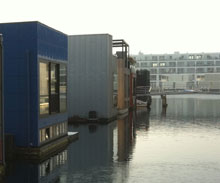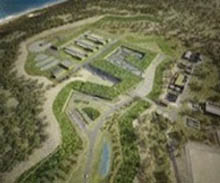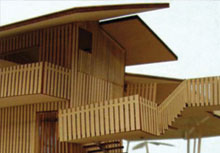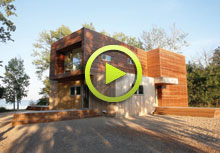Ecotourism can therefore be an intensely unnatural way of experiencing the natural world. Sustainable development, on the other hand, is far less
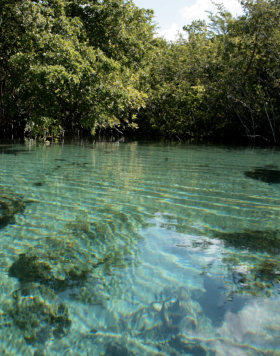 pristine, and far more honest.
It can best be understood as a process focused less on the resulting form of a resort, and more on the series of overlapping concerns—economical, ecological, social, and material—that shape it. A fully functioning sustainable development doesn′t attempt to minimize the complexities that come with ecology and construction; it engages them head on. A sustainable development has to interact with its environs; a resort indifferent to the struggling slum beyond its gates, for instance, would be unacceptable, even if it were carbon-neutral and outfitted with a state-of-the-art water recapturing system. A fully functioning sustainable development doesn′t attempt to minimize the complexities that come with ecology and construction; it engages them head on. Should native areas be preserved at all cost? Or might we be able to preserve an even larger swath of land by cutting certain areas to foster development and stimulate the local economy? These unavoidable economic practicalities complicate but ultimately enrich the final development solution.
pristine, and far more honest.
It can best be understood as a process focused less on the resulting form of a resort, and more on the series of overlapping concerns—economical, ecological, social, and material—that shape it. A fully functioning sustainable development doesn′t attempt to minimize the complexities that come with ecology and construction; it engages them head on. A sustainable development has to interact with its environs; a resort indifferent to the struggling slum beyond its gates, for instance, would be unacceptable, even if it were carbon-neutral and outfitted with a state-of-the-art water recapturing system. A fully functioning sustainable development doesn′t attempt to minimize the complexities that come with ecology and construction; it engages them head on. Should native areas be preserved at all cost? Or might we be able to preserve an even larger swath of land by cutting certain areas to foster development and stimulate the local economy? These unavoidable economic practicalities complicate but ultimately enrich the final development solution.





















